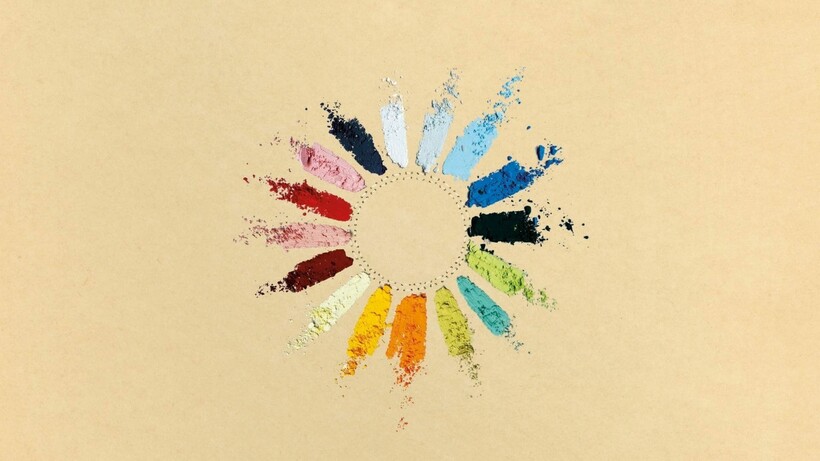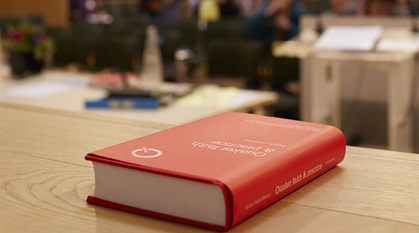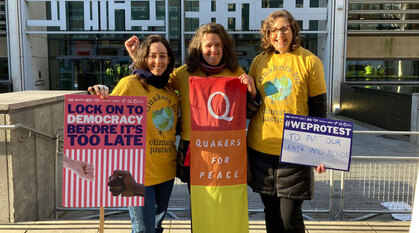Living the spirit of ubuntu: preparing for World Quaker Day
In preparation for World Quaker Day on 1 October, Tim Gee shares some thoughts on the word ubuntu, and why Friends are talking about it.

The next Quaker World Plenary Meeting will be hosted by the Friends World Committee's Africa Section and Southern Africa Yearly Meeting. Accordingly the event's framing is African, using the word and concept ubuntu, known and used in various countries of the continent, and originating in Southern Africa.
Most of the world's Quakers live in Africa. It is also the continent with the largest number of Christians in the world. Missionary work has something to do with this, but it isn't the whole story. It's likely that a good many of the early Jesus followers were African, including Simon of Cyrene who carried Jesus' cross, and the 'Ethiopian Eunuch' who was the first gentile convert.
On the day of Pentecost (sometimes called the 'birthday of Christianity'), Africans were among those who spoke of God's work in their own languages. Some of the first regions to officially adopt Christianity were in Africa. Many of the 'church fathers' were African. Jesus himself spent part of his life in Africa.
Yet despite this, the Christianity taught in the 'west' often focuses on the worldviews of European and North American theologians. Even among Quakers who prize equality so much, it is often the writings of British and Anglo-American Friends that are best known, referred to and lifted up.
Insights of Friends around the world
I'm not suggesting for a moment leaving behind the profound perspectives of George Fox, Margaret Fell, John Woolman, or others – indeed I will be an enthusiastic part of the
international celebrations of Fox's 400th birthday in 2024. I am interested though, in how – whilst honouring our shared heritage – we can also be open to the insights of Friends around the world today.
Quakerism did not arrive in South Africa through missionaries, but principally through professionals of different descriptions. The faith there has evolved through participatory discussion, prayer and discernment, including by embracing those words used by people already there for the spirituality experienced together. Through this, a modern multicultural Quakerism has emerged, central to which is the word
ubuntu.
The wisdom of ubuntu
Ubuntu refers to the recognition that 'a person is a person through other persons', or more succinctly 'I am because we are'. An ancient wisdom, emphasising community and interdependence, it has been revived and reasserted through struggles against colonialism and apartheid. The popularity of ubuntu in its Christian articulation is often associated with Desmond Tutu,
a friend to Quakers, who nominated him for the Nobel Peace Prize.
Ubuntu resonates with the Quaker belief of 'that of God in everyone'. In Southern Africa's book of
Faith and Practice Living Adventurously (PDF), ubuntu is described as being rooted in the "invisible circuit of connection between us all". It is also reflected Biblically, for example in in Paul's words to the Corinthians "the body is not made up of one part but many" (1 Corinthians 12:14), and to the Galatians (3:28) "you are all one".
In practice it means everyone has a responsibility for the welfare of the whole community, and ensuring that people have what they need. This extends to care for the environment, since people are part of the same God-given creation that is an interdependent whole. Friends are seeking to translate ubuntu into policy in South Africa by calling for a universal basic income and systems of clean and abundant energy.
A greater spiritual wholeness
Ubuntu is found in many African societies, though terms, languages and nuances differ. For those of us, like myself, who are not African, the invitation to engage feels like an opportunity to rebalance the worldviews we may have inherited, with insights from elsewhere in the world. Even if we get things wrong at times (and I'm sure that we will) the very attempt feels symbolic of the intention to redress inequalities, and move forwards towards a greater spiritual wholeness.
This
World Quaker Day that invitation is extended to Friends everywhere. Southern African Friends have shared a video made at their Yearly Meeting, to see what connections Friends might feel. An international team has also suggested some queries, to consider alone or in groups.
In the months since Southern Africa Yearly Meeting I've been part of a good many conversations about ubuntu in different places, and been thrilled to hear Friends reflecting on similarities with words or expressions in, for example, KiSwahili, Shona and Māori. This has led me to wonder, whether, amid all of our diversity, could ubuntu be something that unites us as Friends around the world?
I don't know the answer to that question. We'll only find out together.
Queries for World Quaker Day
- How would you express the concept of ubuntu in the language or culture you are most familiar with?
- What would the effects be if our global Quaker community were to follow the precepts of ubuntu more closely, and how can we go about this?
- How can churches and communities work for changes in the governments, economic and political structures to embrace the principle of ubuntu?
- As the climate crisis accelerates, what could the application of the principles and practices of ubuntu mean for us?
- From where does hope come?
Reflections sent to worldquakerday@fwcc.world will be considered for the World Plenary study pack, shared with Friends in every country as we prepare to come together next year.


